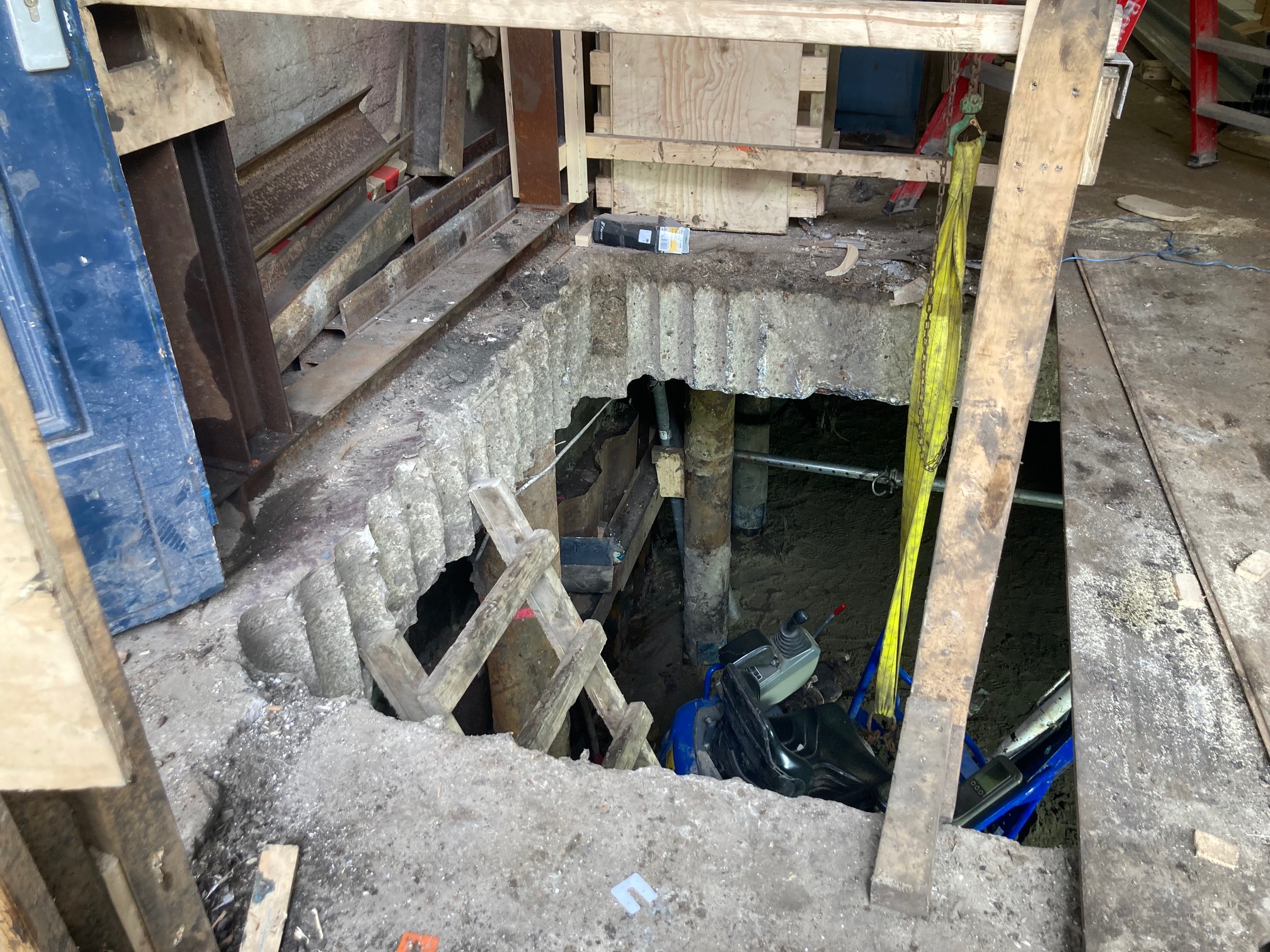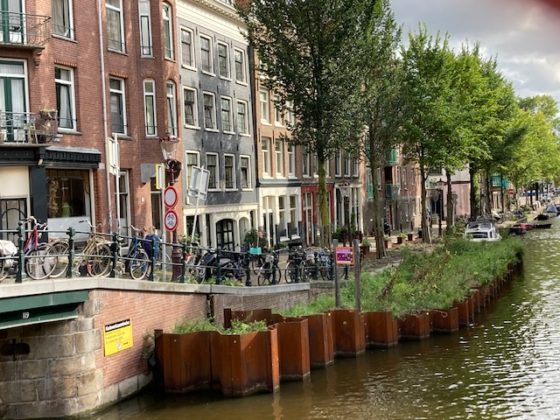What is an “old age” clause? The nuts and bolts of buying a home
Senay Boztas
What questions should you ask yourself – and your estate agent – if you want to buy a house in the Netherlands? Senay Boztas makes sense of the double Dutch.
Renting costs have gone through the roof. The number of free market flats available to rent has plummeted. According to estate agents, ever more internationals are considering buying, even if they plan to be in the Netherlands for just a few years.
But even though Dutch houses have trended upwards over time, they are now at their highest ever levels. The DNB central bank says they are overpriced by European measures and The Economist estimated last year that if climate risks such as flooding and subsidence were priced in, Amsterdam prices would fall by 40%.
As potentially a short-term owner, you want to know you will not make a loss. So how do you make sure the house you buy is on solid ground?
Adverts
Under European law on unfair practices, adverts for houses must be truthful and must not contain misleading omissions. If you ask an agent a question during a viewing, they are supposed to answer truthfully.
However, there are allegations that platforms like Funda do not accurately list when houses were first advertised or their original price, and the Dutch consumer authority ACM is understood to be investigating. This means that as a buyer, you should rely on your own research.
Services such as Betrap de Makelaar (“catch out the estate agent”) can help you find out when a property was first listed. Despite estate agent figures on “overbidding”, many properties are on the market for months or even years, if sellers believe they are worth a certain price.
Check the Kadaster to find out what the sellers paid for the house and how long they have lived there. Look up the official value from the municipality to estimate if the asking price is reasonable and square metres are correct (a sign of illegal building). Check the address and street – has it been involved in any court cases? Are there plans to build nearby? Have any houses been closed, sometimes in relation to drugs?
Clauses
Sometimes sellers include clauses in their sale agreement and these are mentioned online. But what do they mean?
As is, where is. If you see this, beware (and not just because it is appalling English). It signals a situation that requires technical expertise. If you are not a building expert or rich enough to deal with expensive problems and planning rules, avoid.
Ouderdomsclausule. This warns that the building is old and may not conform to modern standards. It shifts the risk for age-related issues to you, although a seller must still disclose known problems. Ask more questions.
Asbestclausule. This means there is (or might be) asbestos. You are strongly advised to pay for a technical survey. Consider proposing that if costs exceed a certain sum, the seller pays – or reserve enough cash for surprises.
Niet-zelfbewoningsclausule. This means the sellers have not been living at the property. But if they have owned it for a long time, they should know plenty – so ask what they do know and why they want to reduce their liability.
Onderzoeksplicht koper. This is a red flag: something could be wrong but you have a duty to investigate. Could someone be about to build a huge nightclub next door? Employ your own estate agent and ask them to do the checks (and take legal responsibility).
Anything else? Get advice. A seller has a legal duty to declare relevant issues, otherwise they are liable for verborgen gebreken, a failure to disclose problems. Clauses are a flag for potential problems.

Do it yourself
You have a legal duty to investigate the property. Even if your mortgage lender – strangely – does not require it, you should always do a building survey.
Ask about the state of the foundations. If “nothing is known” and the building is sloping, why has there been no investigation? Check city measurements and whether the building has a foundation code.
Signs of trouble include a serious slope in one corner, uneven pavement outside, cracks in the walls, zigzag damage in brickwork or around windows, slow drainage and doors that no longer fit.
Find out about the roof and woodwork, when they were last renovated and whether or not they are standard: if not, why not?
Check for flood risk. In Amsterdam, the city has produced three maps that tell you street-by-street the flood risk from heavy rainfall and river floods. Many districts urgently need work.
The seller should fill in a survey declaring any known issues (such as flooding, vermin and boundary problems). If they refuse to fill this in, do not buy. If their answers conflict with what the selling agent tells you, ask them more questions in the presence of your lawyer, when signing the sale contract.
Cooling off
Keep your head, even if you are reading about intense competition for houses and estate agents are pressuring you.
If you buy a property in the Netherlands, you are probably taking on a major debt, which you cannot escape by going bankrupt or giving back the keys. After signing a sales contract, you have a three-day cooling off period – a critical protection. You should always insist on contractual terms allowing you to dissolve the sale if you are denied a mortgage or a survey reveals major problems.
Don’t let being an international buyer mean being scammed on the Dutch housing market. Ask the right questions and you’ll be home and dry.
Thank you for donating to DutchNews.nl.
We could not provide the Dutch News service, and keep it free of charge, without the generous support of our readers. Your donations allow us to report on issues you tell us matter, and provide you with a summary of the most important Dutch news each day.
Make a donation